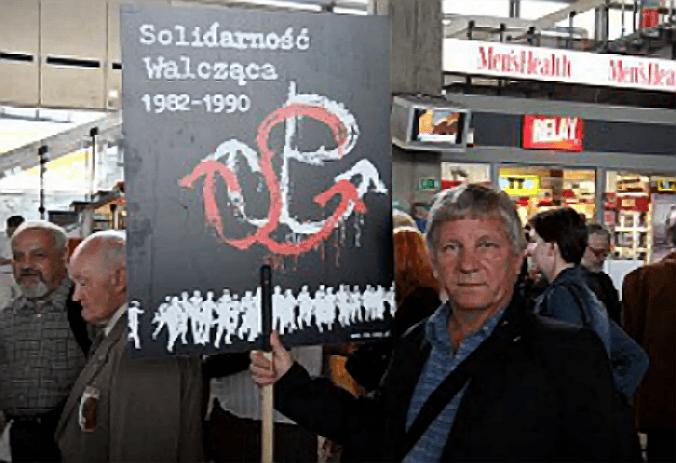WARSAW—On June 14, Poland celebrated the 25th anniversary of the founding of Fighting Solidarity, the only freedom-seeking Polish organisation of the 1980s whose stated goal was the elimination of communism and freedom for all nations under the iron curtain.
Widely considered the most militant or radical splinter of the Solidarity trade union, the group’s main tactics revolved around an underground press, known as “bibula,” and underground radio broadcasts.
“We should remember that independence and democracy were not given to us as a gift; we had to fight to attain them,” said Bogdan Borusewicz, Speaker of the Polish Senate, in an opening speech at the Sejm, the Lower House of Poland’s Parliament.
Borusewicz thanked Fighting Solidarity members for risking their safety and their careers while undertaking actions that resulted in freedom for contemporary Poland.
Those gathered greeted former Polish Premier Jan Olszewski, Fighting Solidarity founder Kornel Morawiecki, and Anna Walentynowicz—whose firing in 1980 started the famed Gdansk shipyard strikes—with a standing ovation. Walentynowicz was welcomed as the “mother of Solidarity.”
The Speaker of the Sejm, Ludwik Dorn, noted that Fighting Solidarity activists dedicated themselves to achieving the greatest possible change in society, and that they “spoke loudly about what everyone was thinking about.”
“What Fighting Solidarity made its mission was what actually ended up happening. We have independence, the Soviet Union fell apart, and communism in Poland collapsed. That is why they deserve specific thanks,” said Dorn.





